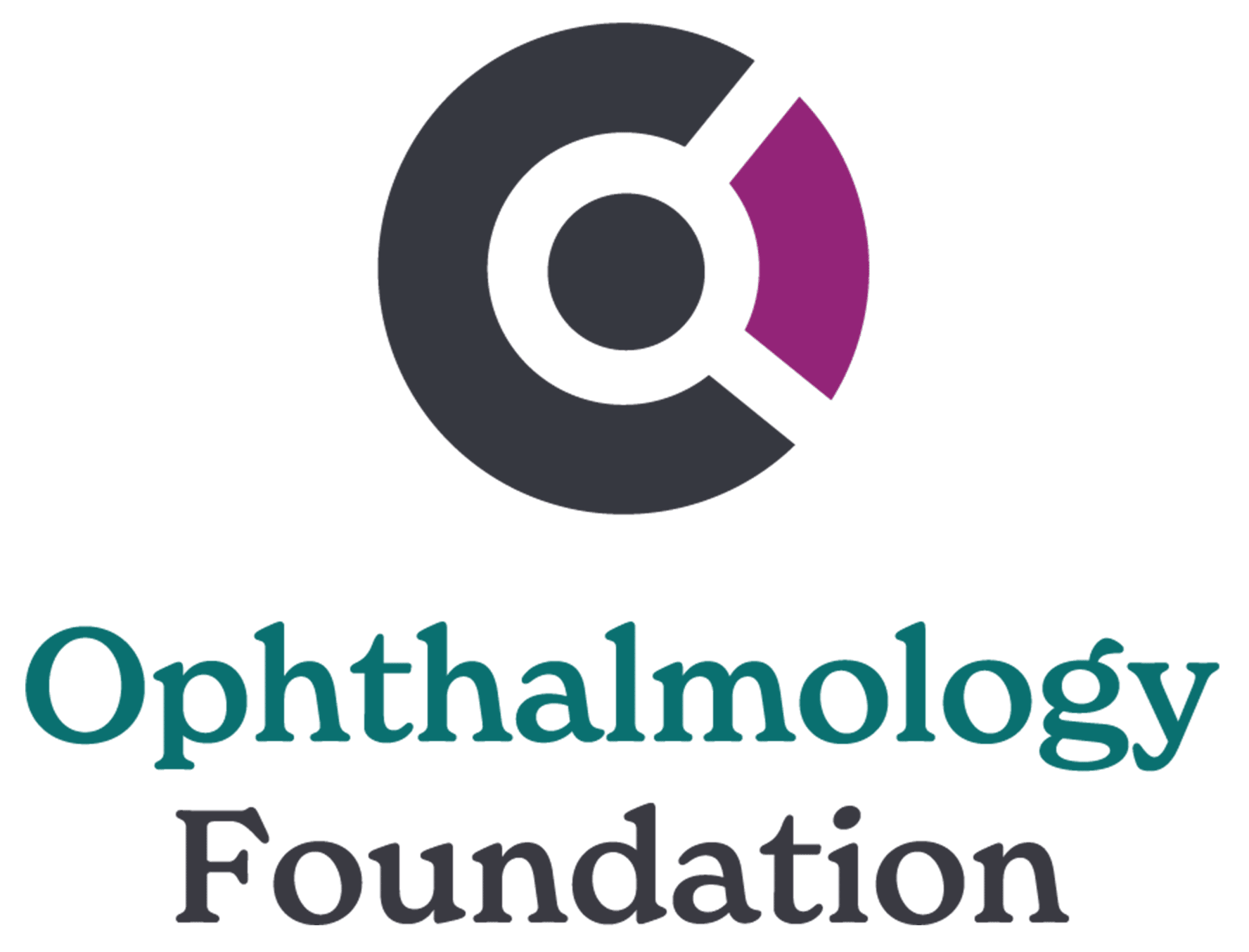OF International Ophthalmology Training Program Accreditation
Accreditation is a voluntary evaluation process for residency training programs that organizations undergo to maintain standards of quality agreed upon by members of an accrediting body. Accreditation ensures that programs meet and conform to the expectations of the ophthalmology profession. Accreditation through the Ophthalmology Foundation will focus upon evaluating and refining programs, protecting the resident’s education, and ultimately improving patient care. Discover accreditation testimonials.

Why get accredited by the Ophthalmology Foundation?
- Ensure the quality of training and ophthalmologists’ competence.
- Gain valuable feedback to refine and improve your residency program.
- Attract more and higher caliber of residents.
- Positive impact on the other training programs run by the institute.
- Ultimately improve patient care.
Developing a program of international residency program accreditation delivers upon our mission to improve global eye care and advance scientific ophthalmology, and helps us meet the needs of underserved segments.
Accreditation Committee
Chair: Dr. Karl Golnik
Members:
Dr. Ijilmurun Enkh-Amgalan
Dr. Ashok Grover
Dr. Marko Hawlina
Dr. Van Lansingh
Dr. Wanjiku Mathenge
Dr. Janos Nemeth
Dr. Gabriela Palis
Dr. Marie Louise Roed Rasmussen
Dr. Aishwarya Sriram
Levels of Accreditation
There are two levels of accreditation: Basic Non-Surgical and Advanced Surgical. Basic Non-Surgical accreditation standards represent the minimum requirements for training, including a robust surgical wet lab training program. Advanced Surgical accreditation can only be achieved by programs graduating residents who are competent to perform basic ophthalmic surgical procedures as described in section 2.4 and Appendix B of the Guidelines (also in Spanish and Portuguese), and represent what the Ophthalmology Foundation hopes all programs aspire to. Accreditation can be awarded for 5 years and then repeated at regular intervals.
Steps for Accreditation
Program accreditation is a process that requires standards of structure, process and achievement, self-assessment, and review by outside experts. The process of program accreditation typically comprises a four-step cycle.
Eligibility: For ophthalmology residency training programs with at least three years duration; must have a surgical wet lab training.
- Complete Self Assessment: The program completes the Accreditation Self-Assessment of their educational process, resources, strengths and weaknesses based on the Accreditation Guidelines (available in Spanish and Portuguese).*
- Contact info@ophthalmologyfoundation.org to request the self-assessment form.
- Submit the self-assessment and supporting documents in the accreditation application form linked below.
- Accreditation application review fee of $150 is to be submitted with the application.
- Application Eligibility Review and Fees: The accreditation review panel determines eligibility to proceed with the accreditation process and provides recommendations to the program.
- If the program wishes to proceed with evaluation of application for accreditation, an Accreditation fee is due based on the income ranking of the economy by the World Bank. Determine your program’s cost by World Bank Incoming ranking here.
- $3,000: High Income
- $2,500: Upper Middle Income
- $2,000: Lower Middle Income
- $1,200: Low Income
- If the program wishes to proceed with evaluation of application for accreditation, an Accreditation fee is due based on the income ranking of the economy by the World Bank. Determine your program’s cost by World Bank Incoming ranking here.
- Self-Assessment Review and Site Visit: The accreditation evaluators will review the self-assessment and provide detailed feedback to the program regarding deficiencies and corrective actions needed.
- A site visit will be arranged—either virtual, physical, or a combination of methods. If in-person option is selected, the costs of travel and accommodation for one evaluator will be charged.
- A program has six months from application eligibility review submission to schedule the site visit date or the process and payments will need to start over.
- Program Application Evaluation: an accrediting organization reviews the program’s self- assessment and the site visit report to assure accreditation standards are met.
- The site visit evaluators make a recommendation based on the site visit and self-assessment.
- The Accreditation committee reviews the program’s self-assessment and the evaluators’ site visit report to assure accreditation standards are met.
- Full (5 years) accreditation or denial (with option to appeal) of accreditation of program is issued as a certificate and plaque.
- The program may reapply for advanced surgical accreditation after 12 months if the asterisked (*) recommendations are met from the accreditation award documentation. Regular application fees will be required.
- The accreditation process repeats at regular intervals of five (5) years.
- A plaque acknowledging international accreditation will be sent to the program.
*The Accreditation Guidelines were developed by adapting a template created by the World Federation for Medical Education (WFME) after reviewing existing ophthalmology national and regional guidelines.1-7 The WFME evaluates nine primary areas each with sub-areas. Areas were defined as “broad components in the structure, process and outcome of postgraduate medical education and training” including:
- Mission and Outcomes
- Educational Program
- Assessment of Trainees
- Trainees
- Trainers
- Educational Resources
- Program Evaluation
- Governance and Administration
- Continuous Renewal
Ophthalmology Residency Training Program Accreditation Testimonials:
Magrabi ICO Cameroon Eye Institute (MICEI) in Yaoundé, Cameroon
“Going through the accreditation process has been a truly educational and enlightening experience for our team. It gave us the opportunity to thoroughly examine our programme, and in doing so, we were able to identify gaps and areas for improvement. This insight has been invaluable, and we are already actively working on addressing these areas. The accreditation letter also provided us with a number of thoughtful recommendations, which we are following closely. Each of these steps brings us closer to our ultimate goal: improving the quality of eye care service delivery in Cameroon and the broader subregion. We deeply appreciate the support and guidance provided throughout this process. It has not only strengthened our programme but also reaffirmed our commitment to excellence in eye care education and service.”
Awarded Basic Non-Surgical Accreditation in August 2025
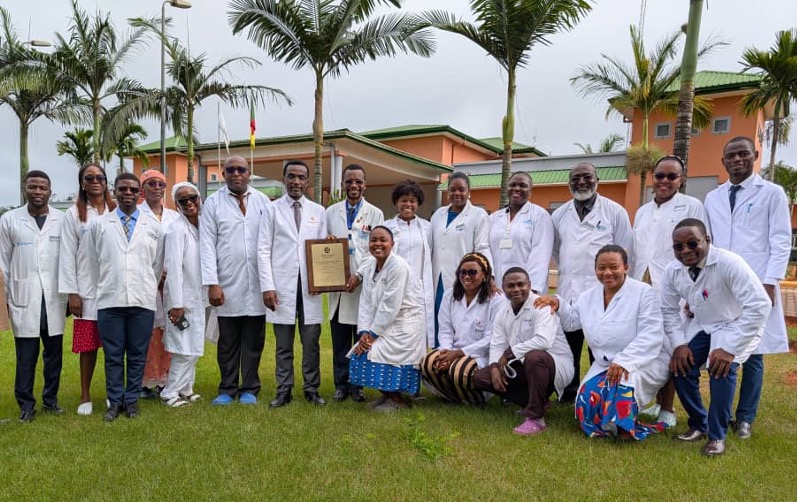
He Eye Specialist Hospital (HESH) in Shenyang, China
“Following its accreditation by the Ophthalmology Foundation, He Eye Specialist Hospital has gained a broader platform for international training. Moving forward, the hospital will leverage its technological strengths, train more young ophthalmologists with innovative and future-oriented mindsets, and provide a robust platform for talent development—making lasting contributions to global eye health.”
Awarded Basic Non-Surgical Accreditation in January 2025
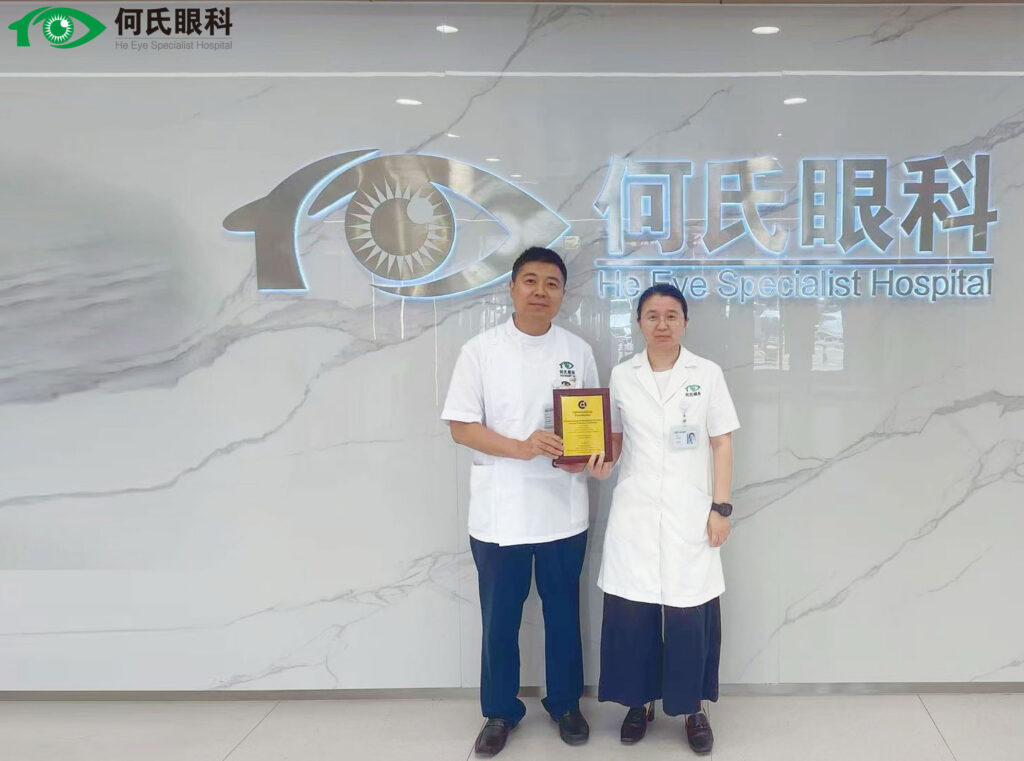
Rwanda International Institute of Ophthalmology (RIIO) in Kigali, Rwanda
“RIIO participated in accreditation from the Ophthalmology Foundation because we are a new program with a model that’s unknown in Africa where we are training out of a private health facility. This accreditation helped us understand the standards for wet lab, exams, journal club, etc. Our faculty were pleasantly surprised because the process made us better and helped us fill in all those gaps. Ophthalmology Foundation accreditation also gave us some clout and relevance in the region because OF is a globally known organization and we need a global standard against which we measure ourselves. Another benefit we gained from accreditation was attracting international students because our program can meet the rigor of the Ophthalmology Foundation accreditation standards and we are trusted for doctors to come train. Being the first Ophthalmology Foundation accredited program in Africa was very affirming of what we are doing at RIIO.”
Awarded Advanced Surgical Accreditation in January 2025
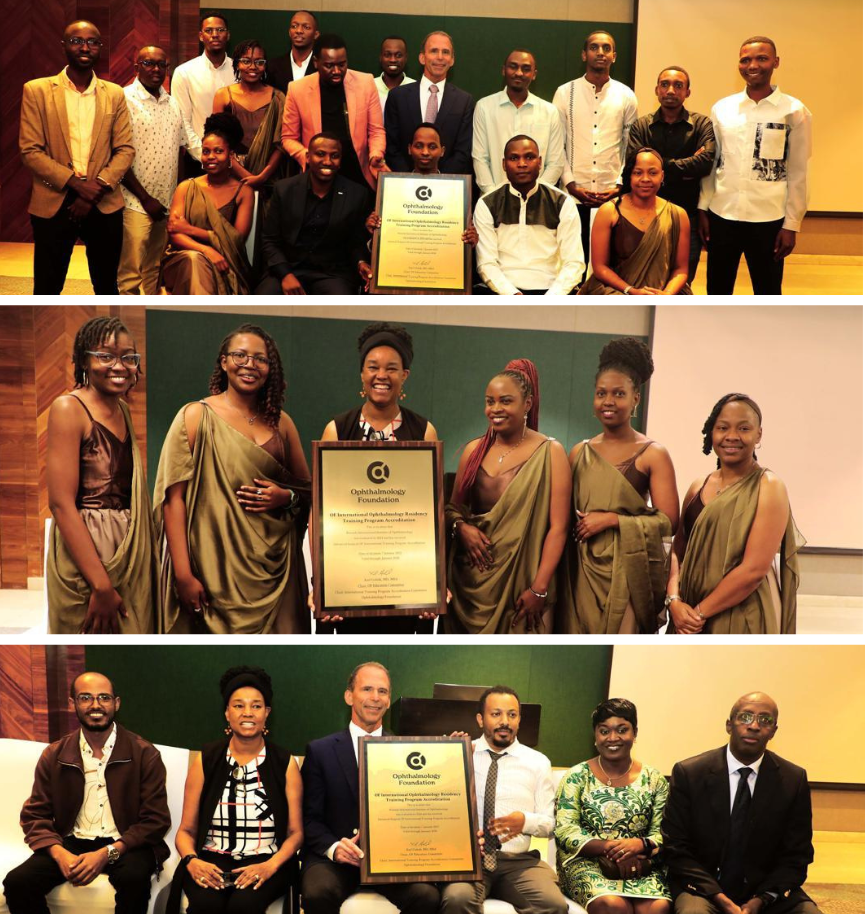
Instituto Mexicano de Oftalmología, IAP (IMO), Santiago de Querétaro, Mexico
“We are proud to receive this accreditation from such a prestigious organization as OF. This accreditation helped us as an institution and myself as program director, to evaluate our program and identify the opportunity areas where we can improve (OF feedback is a great tool). We had renewed our commitment to give our best every day not only for residency training but at the end of the day for the most important people: our patients. This accreditation would not have been possible without the hard work of all the medical areas but also from administrator and every person who collaborates at IMO.”
Awarded Advanced Surgical Accreditation in July 2024

Dr. Shroff’s Charity Eye Hospital in New Delhi, India
“We are grateful to OF for assessing our training program and for this prestigious accreditation. The rigorous evaluation of quality standards of our training program has been a learning experience and has helped in improving our processes and protocols to enhance the learning environment for our participants. This recognition will definitely serve to align our training programs at par with the best global standards and will benefit both our learners and the academy by enhancing the international recognition of the education academy as well as attract more and higher caliber learners.”
Awarded Advanced Surgical Accreditation in June 2024

